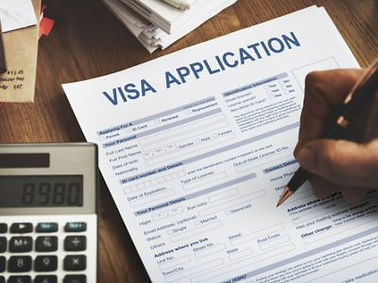
Immigration Law
Navigating the complicated world of U.S. immigration law is stressful and confusing. Contacting legal guidance can simplify the process and make it easier to achieve your desired outcome. At Hudson Law Group PLLC, you can work with an immigration lawyer who understands the struggle. As an immigrant himself, Attorney Hudson knows how the immigration law process works. His personal experiences with the law set him apart from others in his field, and you can rest assured that when you work with him, your case is in compassionate and capable hands.

Deportation Cancellation
Entering or remaining in the U.S. unlawfully or being charged with immigration or criminal violations can land a non-citizen in deportation (removal) proceedings. When faced with deportation, it is crucial that you hire a knowledgeable and aggressive immigration attorney to fight for on your behalf.
Asylum
If you are from a country where you have undergone persecution, or you have a well-founded fear of being persecuted if you return to that country in the future, you may decide to seek either refugee protection from the U.S. (if you are currently overseas) or asylum (if you are currently in the United States).


Adjustment of Status
Adjustment of status (AOS) is the process of changing from a non-immigrant immigration status (e.g. student, tourist, etc.) to permanent residence (green card holder).
Waivers
Certain immigrants and non-immigrants who wish to enter or remain in the U.S. may be found inadmissible and have their request for entry denied. The following are some of the most common circumstances which may lead to a person being considered inadmissible to the U.S:


DACA
Deferred Action for Childhood Arrivals (DACA) allows some individuals with unlawful presence in the United States, after being brought to the country as children, to receive a renewable two-year period of deferred action from deportation and become eligible for a work permit in the U.S.
Immigration Bond
Every year there are thousands of immigrant detainees that are released from detention on nationwide immigration bonds. Being released on immigration bond allows an immigration facing deportation the time to elongate his proceedings...


Visas
Every year there are thousands of immigrant detainees that are released from detention on nationwide immigration bonds. Being released on immigration bond allows an immigration facing deportation the time to elongate his proceedings and allow them the time to obtain the necessary documentation/evidence needed to win his/her case on merits.

U-Visas
If you know someone who is out of status here in the United States and has been the victim of a crime, he or she may be eligible for a U-visa. U-visas are available to foreign nationals or aliens who are in the United States and entered without inspection ("EWI") or have overstayed an original visa grant.
H-Visas
H-Visas are a non-immigrant visas program for those who want to work in the U.S., but don't intend on living here permanently.
There are different forms of H-visas--depending on the industry of worker's interests--that have different specialized requirements.


Visas for Professionals & Business People
-
Visas for executive, managers, and employees of international firms (L-1A and L-1B visa)
-
Temporary work visas for professionals (H-1B visa)
Work Visas
Immigrant petitions I-140/I-485 (Permanent Residency or Green Card):work-based petition by U.S. Employer for the following: Professionals, executives, managers, business owners, lower-skilled workers, and all employment-based immigration categories (I, II, III, IV, & V).


K-1 Fiancé Visas
A K-1 visa is a visa issued to the fiancé or fiancée of a United States citizen to enter the United States.
You may be eligible to bring your fiancé(e) to the United States on a fiancé(e) visa if you meet the following requirements:
F-Visas
The F-1 student visa is the most common visa for students wanting to study in the United States. It is a temporary visa for foreign students who enter the United States in order to continue their education at an accredited school or college.


Family Visas
A U.S. Citizen or Permanent Resident (LPR) may sponsor certain members of their family to come to the U.S. and receive a green card. An individual's status as either an LPR or a U.S. Citizen will determine if the family member is eligible to be sponsored.